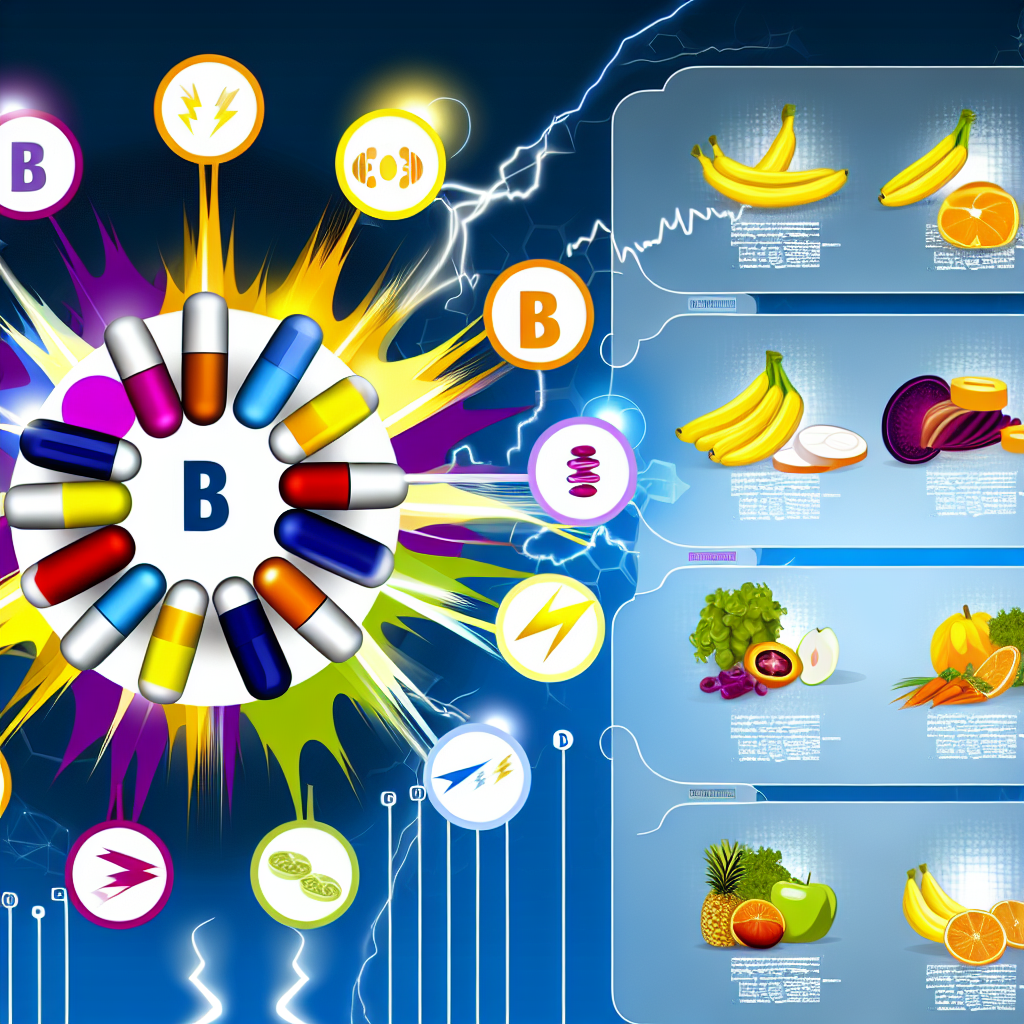B vitamins are foundational nutrients that your body relies on for energy, brain health, and overall wellness. Although they play critical roles in maintaining physical and mental function, they are often overlooked in everyday diets. This comprehensive guide explores the importance of B vitamins, common deficiency symptoms, natural food sources, and whether supplementation is necessary. Armed with this knowledge, you can take proactive steps to prioritize these essential nutrients.
What Are B Vitamins? A Breakdown of the Basics
B vitamins are a family of eight water-soluble nutrients that your body must replenish regularly. They are often referred to collectively as the "B complex," and while they are interconnected, each vitamin performs a unique function within the body. Together, they play crucial roles in supporting energy metabolism, keeping cells healthy, and maintaining your overall well-being.
The Types of B Vitamins
Here’s a quick overview of the eight B vitamins:
- Vitamin B1 (Thiamine): Converts carbohydrates into usable energy and supports nerve function.
- Vitamin B2 (Riboflavin): Promotes healthy skin, eye health, and energy production at the cellular level.
- Vitamin B3 (Niacin): Aids digestion, supports cholesterol regulation, and helps maintain healthy skin.
- Vitamin B5 (Pantothenic Acid): Plays a key role in hormone production and energy metabolism.
- Vitamin B6 (Pyridoxine): Supports brain function, immune health, and emotional balance.
- Vitamin B7 (Biotin): Promotes healthy hair, skin, nails, and metabolism.
- Vitamin B9 (Folate/Folic Acid): Vital for DNA synthesis, cell growth, and fetal development during pregnancy.
- Vitamin B12 (Cobalamin): Crucial for red blood cell formation, DNA synthesis, and neurological health.
The Benefits of B Vitamins: Why Your Body Loves Them
Each B vitamin contributes to your overall health, with benefits spanning energy, brain function, and even protecting your heart.
1. Boost Energy Levels Naturally
Ever feel like you’re running on empty? B vitamins like B1, B2, and B3 help your body convert food into energy, ensuring that your metabolism stays efficient. Imagine them as tiny workers in your cells, transforming nutrients into fuel.
2. Enhance Brain Function and Mental Clarity
Your brain depends heavily on B6, B12, and folate to produce neurotransmitters that regulate mood and cognitive processing. Proper B vitamin intake has even been linked to reduced memory loss as we age.
3. Support Heart Health
B6, B9, and B12 play critical roles in keeping homocysteine levels in check. Elevated homocysteine is a known risk factor for heart disease, making these vitamins vital for cardiovascular health.
4. Strengthen Skin, Hair, and Nails
Biotin is famous for boosting hair growth and strong nails, but it’s also key to maintaining healthy skin. When combined with Niacin or Riboflavin, these vitamins can work wonders for your complexion.
Symptoms of Deficiency: Are You Missing Out on B Vitamins?
B vitamin deficiencies can show up in subtle ways, often mimicking symptoms of other health issues. Recognizing these signs early can help prevent long-term complications.
Common Deficiency Symptoms
- Fatigue and brain fog: Often connected to low levels of B1, B6, or B12.
- Muscle weakness: Can be linked to deficiencies in B5 or B12.
- Mouth sores or cracked lips: A sign of B2 deficiency.
- Mood swings: These could stem from low B6 or B3 levels.
- Numbness or tingling: B12 deficiency can impact nerve health.
Who Is Most at Risk?
Some groups face higher risks of B vitamin deficiencies, including older adults, pregnant women, vegans, vegetarians, and individuals with digestive disorders. Regular blood testing and dietary adjustments can help counteract these issues.
Foods High in B Vitamins: Your Go-To Sources
The best way to boost your intake of B vitamins is by eating a variety of nutrient-rich foods. Here’s where to find them:
Plant-Based Sources
- Leafy greens: Spinach and kale are fantastic sources of folate.
- Legumes: Lentils, chickpeas, and black beans are rich in B6 and folate.
- Whole grains: Oats and quinoa provide B1, B2, and B5.
- Mushrooms: A great source of B2 and B3 for plant-based eaters.
Animal-Based Sources
- Eggs and dairy: Loaded with B12, B5, and B2.
- Meat: Beef, chicken, and pork contain B1, B6, and B12.
- Fish: Salmon and tuna are packed with B3, B6, and B12.
Fortified Foods
For vegetarians and vegans, fortified options like cereals, nutritional yeast, and plant-based milk can fill gaps, particularly for B12 intake.
Do You Need B Vitamin Supplements?
Many people can meet their B vitamin needs through food, but supplementation may be necessary for certain groups—especially vegans, pregnant women, and older adults. Here's what you need to know:
When Supplements Are Necessary
- Pregnancy: Folate is critical for fetal development.
- Restricted diets: Vegans often need a reliable source of B12.
- Age-related factors: Older adults often struggle to absorb B12 effectively.
- Chronic illnesses: Conditions like Crohn’s disease impact nutrient absorption.
Don’t Overdo It
While supplements can be helpful, taking too much can lead to side effects like nerve damage (B6) or skin flushing (B3). Always consult a healthcare provider before adding supplements to your routine.
Conclusion: Why B Vitamins Deserve Your Attention
B vitamins are the unsung heroes of good health, and ensuring that you meet your daily needs can transform your energy levels, mood, and overall wellness. Whether it's through a diet rich in leafy greens, eggs, and salmon, or via supplementation where necessary, making B vitamins a priority is a simple yet powerful way to take care of yourself.
Start small—swap white pasta for quinoa, add mushrooms to your salads, or choose fortified cereals for breakfast. These little changes add up quickly, and trust me, your body will thank you for it in the long run.
